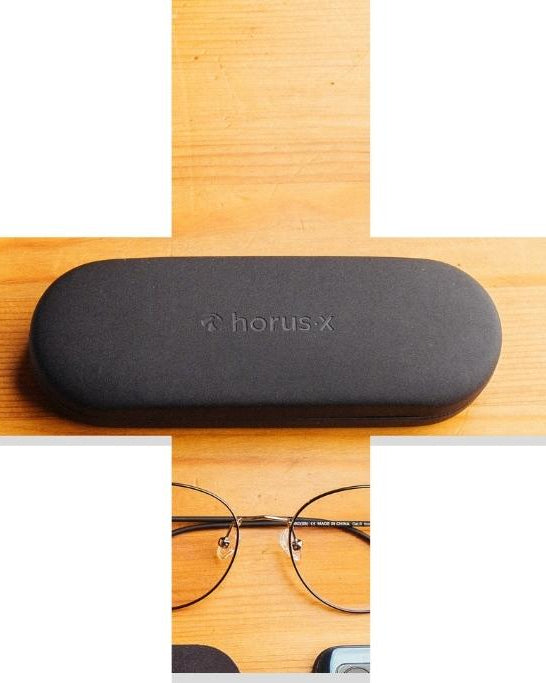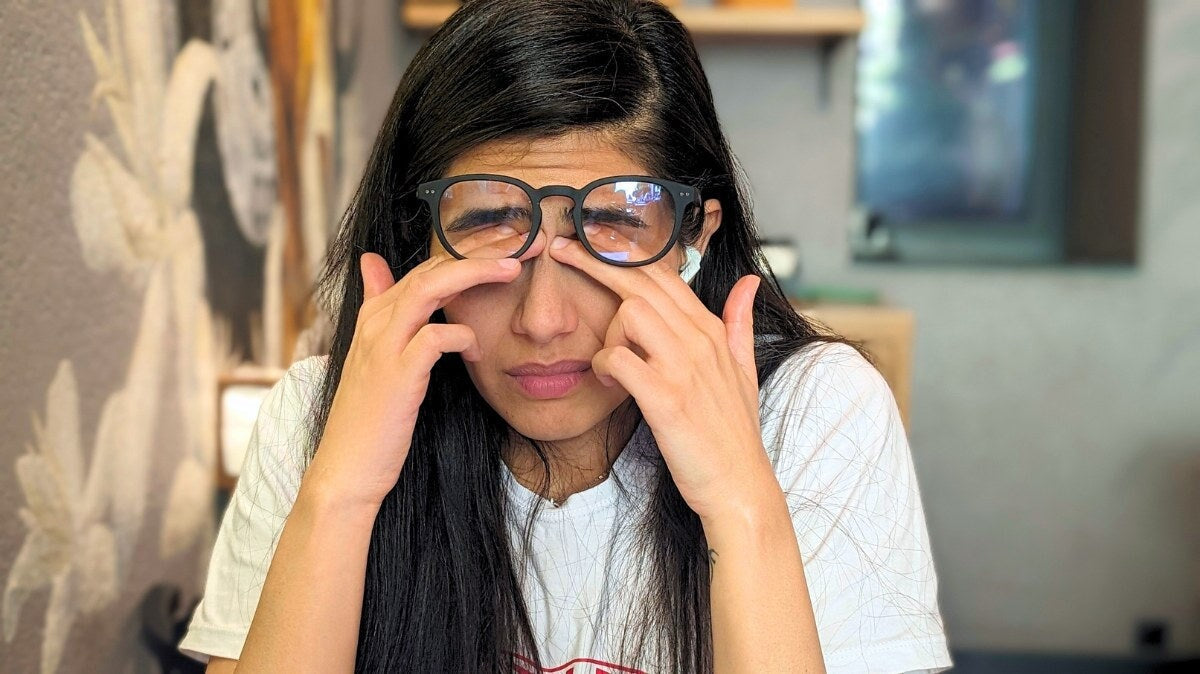There are questions that we ask ourselves spontaneously, such as: which of the egg or the chicken came first? Why is the sky blue ? How many times do we blink a day? Today you're going to learn more about blinking, and the answer will blow your mind! And you can see if you blink enough!
In summary :
-
We blink 19,200 times a day.
-
The logical function of the blink of the eye
-
Am I blinking enough (or too much)?
-
Does nictation allow you to rest during the day?
We blink 19,200 times a day: that's a lot
Let's do some math (nothing crazy, don't worry). We blink an average of 20 times per minute , or 1200 times per hour (20 x 60 minutes). If we estimate that an average man sleeps 8 hours a night, he will blink 19,200 times a day (1200 x 16 hours). Knowing that the average duration of an eye blink is 150 milliseconds (i.e. 0.15 seconds), you spend 48 minutes a day with your eyes closed (19,200 x 0.15 = 2880 seconds / 60 = 48 minutes) .
Phew, finish the math! In summary, you spend 48 minutes of your awake time with your eyes closed. That's one hell of a nap, right?
The logical function of the blink of the eye
Nature does things well and if we blink so often, it's for a reason. In fact, for several reasons:
-
🧹 Clean the eye of debris and impurities that we collect throughout the day;
-
💦 Hydrate the eye thanks to the tear liquid deposited by the eyelid with each blink;
-
🌬 Oxygenate the eye, once again, thanks to tear fluid;
-
🧼 Disinfect the eyes with the help of enzymes contained in tear fluid.
All these reasons allow you to have healthy eyes, to avoid dry eyes, as well as diseases such as infections.
Am I blinking enough?
The question seems innocuous, but it is full of meaning. Indeed, if you tend to have burning eyes, headaches and red eyes, it is quite possible that you do not close your eyelids enough during the day. This happens when you are focused on a task, especially in front of a screen.
Dry eyes can also be caused by other factors such as:
-
Age;
-
The environment ;
-
Medication ;
-
Diseases affecting the creation of tear fluid;
-
Wearing contact lenses.
So, to save your eyes, here are some tips:
-
📺 Limit your screen time by taking hourly breaks;
-
💆♀️ You can massage your eyelids to relieve your eyeballs;
-
💧 Use saline to clean your eyes.
-
🤓 Wear anti blue light glasses (protect from dust and screens).
Of course, if the symptoms persist, consult a health professional.
It is also possible that you blink a little too much, for several possible reasons:
- Stress or the consumption of tobacco, alcohol or sugar;
- Dry eye;
- A tic (which is rather present in children);
- Fatigue (did you know, car safety systems that alert you when they sense you're tired are based on blinking your eyes more frequently when you're tired!);
- Blepharospasm which is a disorder causing the eyelids to close uncontrollably.
Does nictation allow you to rest during the day?

So yes, blinking is scientifically called "nictation" , and no, it's not an insult. This reflex function of our body would have a deeper reason than the simple cleaning of the eyes.
We spend 48 minutes a day with our eyes closed due to blinking.
As the human body is well made, closing our eyes so often should bring us something else. This is the question posed by Japanese scientists, more particularly Dr. Tamami Nakano , a neuroscientist at the University of Osaka.
Dr. Tamami and his team have released two interesting studies about eye blinking.
Blinking allows our brain to rest
First of all, you can see the study here . This study suggests that a man blinks far too often for the purpose of just lubricating the eye blog. Looking further, it would seem that closing your eyes for a few milliseconds would allow the brain to go into "default mode". In any case, this is what Dr. Tamami's team observed.
🧠 This would mean that the brain rests a little every time we blink!
Eye blinking occurs more often at certain times
The second study by Dr. Tamami observes the synchronization or non-synchronization of the blinking of a group of individuals watching the same movie. The result is that individuals tend to blink when attention is not required . For example, during a change of shot, when the main actor leaves or when an action scene ends. In contrast, subjects do not blink during important scenes or when a story is being told.
This would therefore mean that blinking has a role to play in the brain's attention to what surrounds us. Our brain understands when no information should be missed and inhibits blinking.
The final word: how many times do we blink a day
As we have seen, we blink for good reasons. This is not a stupid question because even researchers are asking questions about the justifications for this phenomenon. However, keep in mind that we blink 20 times per minute on average, which allows us to maintain a healthy eyeball. In addition, blinking allows the brain to rest and manage our attention.















